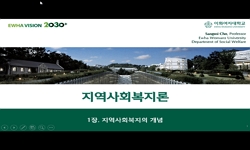본 연구는 생활만족도의 지역 간 차이를 아파트의 지역별 가격이라는 맥락을 통해 규명하는 것을 목적으로 한다. 경제적 요인과 생활만족도 간의 관계가 선행연구에서 다수 다뤄진 바 있으...
http://chineseinput.net/에서 pinyin(병음)방식으로 중국어를 변환할 수 있습니다.
변환된 중국어를 복사하여 사용하시면 됩니다.
- 中文 을 입력하시려면 zhongwen을 입력하시고 space를누르시면됩니다.
- 北京 을 입력하시려면 beijing을 입력하시고 space를 누르시면 됩니다.

생활만족도의 지역 간 차이: 아파트의 맥락효과를 중심으로 = Regional Differences in Life Satisfaction: Focusing on the Contextual Effects of Apartment
한글로보기https://www.riss.kr/link?id=A107942566
- 저자
- 발행기관
- 학술지명
- 권호사항
-
발행연도
2021
-
작성언어
-
-
주제어
지역 ; 아파트 ; 불평등 ; 맥락효과 ; 생활만족도 ; region ; apartment ; inequality ; contextual effects ; life satisfaction
-
등재정보
KCI등재
-
자료형태
학술저널
- 발행기관 URL
-
수록면
105-134(30쪽)
-
KCI 피인용횟수
0
- 제공처
-
0
상세조회 -
0
다운로드
부가정보
국문 초록 (Abstract)
본 연구는 2016년 한국종합사회조사(KGSS) 자료를 국토교통부의 아파트 실거래가 행정데이터와 연계한 후, 다층모형을 통해서 지역의 아파트 가격에 따라 생활만족도의 차이가 어떠한 방식으로 나타나는지를 통계적으로 검증했다. 분석결과는 다음과 같다. 첫 번째, 지역 내의 아파트 가격의 평균이 클수록 소득에 따른 생활만족도의 증가량이 크게 나타났다. 두 번째, 지역 내의 아파트 가격의 편차가 클수록 소득에 따른 생활만족도의 증가량이 크게 나타났다. 다시 말해서, 지역 내의 아파트 가격이 다른 지역에 비해 높거나, 지역 내에서 가격의 편차가 큰 경우에는 소득이 높은 개인과 소득이 낮은 개인 간의 생활만족도의 차이가 크게 벌어진다.
본 연구는 한국에서 복합적인 의미가 있는 아파트를 맥락효과로 고려하여 생활만족도의 지역 간 차이를 드러낸다는 의의가 있다. 특히, 한국적 맥락에서 지역 간 불평등과 지역 내 불평등이 생활만족도의 차이로 이어지는 과정을 설명했다는 점에서 의의가 있다.
본 연구는 생활만족도의 지역 간 차이를 아파트의 지역별 가격이라는 맥락을 통해 규명하는 것을 목적으로 한다. 경제적 요인과 생활만족도 간의 관계가 선행연구에서 다수 다뤄진 바 있으나, 그 관계는 단순히 설명되지 않는다. 일반적으로 소득으로 대표되는 개인 수준의 경제적 요인은 생활만족도를 높이는 것으로 알려져 있지만, 선행연구는 이러한 상관관계가 맥락에 따라 다를 수 있음을 시사한다. 한편, 이 주제에 대해 맥락의 효과를 고려한 선행연구들은 주로 지역의 평균소득으로부터 발생하는 맥락효과를 탐구했다. 그러나 이러한 시도는 심리적 변수에 지나치게 의존하거나, 현실적이지 못한 설명을 제공했다는 점에서 한계를 갖는다. 이에 본 연구는 선행연구들의 한계를 보완하고, 한국의 상황을 보다 현실적으로 반영하기 위해 지역의 아파트 가격을 맥락효과로 포함하여 생활만족도의 지역 간 차이를 분석하려 했다.
본 연구는 2016년 한국종합사회조사(KGSS) 자료를 국토교통부의 아파트 실거래가 행정데이터와 연계한 후, 다층모형을 통해서 지역의 아파트 가격에 따라 생활만족도의 차이가 어떠한 방식으로 나타나는지를 통계적으로 검증했다. 분석결과는 다음과 같다. 첫 번째, 지역 내의 아파트 가격의 평균이 클수록 소득에 따른 생활만족도의 증가량이 크게 나타났다. 두 번째, 지역 내의 아파트 가격의 편차가 클수록 소득에 따른 생활만족도의 증가량이 크게 나타났다. 다시 말해서, 지역 내의 아파트 가격이 다른 지역에 비해 높거나, 지역 내에서 가격의 편차가 큰 경우에는 소득이 높은 개인과 소득이 낮은 개인 간의 생활만족도의 차이가 크게 벌어진다.
본 연구는 한국에서 복합적인 의미가 있는 아파트를 맥락효과로 고려하여 생활만족도의 지역 간 차이를 드러낸다는 의의가 있다. 특히, 한국적 맥락에서 지역 간 불평등과 지역 내 불평등이 생활만족도의 차이로 이어지는 과정을 설명했다는 점에서 의의가 있다.
다국어 초록 (Multilingual Abstract)
This study used the Korea General Social Survey data in 2016, alongside with actual transaction prices of apartments that are provided by the Ministry of Land, Infrastructure and Transport, in order to statistically examine how the difference in life satisfaction varies depending on the price of apartments in regions, by using a multilevel model. The results of this study are as follows: First, the higher the average price of apartments in the area, the greater the increase in life satisfaction due to income. Second, the greater the deviation in apartment prices in the region, the greater the increase in life satisfaction due to income. In other words, if the price of apartments in the region is higher than that of other regions, or if the price deviation is larger in the region, the difference in life satisfaction between high-income and low-income individuals is larger.
This study is meaningful in that it reveals the differences of life satisfaction among regions by considering apartments as contextual effects, which have complex meanings in Korea. Particularly, it is meaningful in that it explained the process in which inequality between and within regions leads to differences in life satisfaction in Korea.
This study aims to discover the regional differences in life satisfaction in relation with regional apartment prices. The relationship between economic factors and life satisfaction has been discussed in many prior studies, but the relationship is not...
This study aims to discover the regional differences in life satisfaction in relation with regional apartment prices. The relationship between economic factors and life satisfaction has been discussed in many prior studies, but the relationship is not simply explained. In general, individual-level economic factors represented by income are known to increase life satisfaction, but prior research suggests that these correlations may vary in different context. Meanwhile, prior studies which considered the contextual effects on this topic take regional average income into account. However, these attempts have limitations in that they are overly dependent on psychological variables, and that they failed to provide realistic explanations. Therefore, this study tried to analyze differences in life satisfaction between regions by including apartment prices as a contextual effect, in order to overcome the limitations of prior studies and to reflect themore realistic circumstances that the Korean society faces.
This study used the Korea General Social Survey data in 2016, alongside with actual transaction prices of apartments that are provided by the Ministry of Land, Infrastructure and Transport, in order to statistically examine how the difference in life satisfaction varies depending on the price of apartments in regions, by using a multilevel model. The results of this study are as follows: First, the higher the average price of apartments in the area, the greater the increase in life satisfaction due to income. Second, the greater the deviation in apartment prices in the region, the greater the increase in life satisfaction due to income. In other words, if the price of apartments in the region is higher than that of other regions, or if the price deviation is larger in the region, the difference in life satisfaction between high-income and low-income individuals is larger.
This study is meaningful in that it reveals the differences of life satisfaction among regions by considering apartments as contextual effects, which have complex meanings in Korea. Particularly, it is meaningful in that it explained the process in which inequality between and within regions leads to differences in life satisfaction in Korea.
참고문헌 (Reference)
1 류지아, "행복에 대한 소득의 상대적 효과: 위계선형모형의 수준간 상호작용항을 사용한 분석" 한국사회학회 50 (50): 255-288, 2016
2 김지범, "한국종합사회조사 2003-2018" 성균관대학교 출판부 2019
3 정해식, "한국인의 행복과 삶의 질에 관한 종합 연구 : 국제 비교 질적 연구를 중심으로" 한국보건사회연구원 2019
4 신승배, "한국인의 행복감 결정요인" 사회과학연구원 41 (41): 183-208, 2015
5 정해식, "한국인의 행복: 소득 및 자산 격차의 영향 분석" 한국사회복지정책학회 46 (46): 185-213, 2019
6 강성진, "한국인의 생활만족도 결정요인 분석" 한국경제학회 58 (58): 5-36, 2010
7 허지정, "지역의 주거환경 특성이 노인자살률에 미치는 영향" 한국주택학회 21 (21): 49-62, 2013
8 배진희, "지역의 정치·사회·경제적 특성이 복지의식에 미치는 영향" 한국지역사회복지학회 (49) : 233-250, 2014
9 통계청, "지역소득통계 2015년 기준 개편결과"
10 김형용, "지역사회 건강불평등에 대한 고찰" 1111-1130, 2009
1 류지아, "행복에 대한 소득의 상대적 효과: 위계선형모형의 수준간 상호작용항을 사용한 분석" 한국사회학회 50 (50): 255-288, 2016
2 김지범, "한국종합사회조사 2003-2018" 성균관대학교 출판부 2019
3 정해식, "한국인의 행복과 삶의 질에 관한 종합 연구 : 국제 비교 질적 연구를 중심으로" 한국보건사회연구원 2019
4 신승배, "한국인의 행복감 결정요인" 사회과학연구원 41 (41): 183-208, 2015
5 정해식, "한국인의 행복: 소득 및 자산 격차의 영향 분석" 한국사회복지정책학회 46 (46): 185-213, 2019
6 강성진, "한국인의 생활만족도 결정요인 분석" 한국경제학회 58 (58): 5-36, 2010
7 허지정, "지역의 주거환경 특성이 노인자살률에 미치는 영향" 한국주택학회 21 (21): 49-62, 2013
8 배진희, "지역의 정치·사회·경제적 특성이 복지의식에 미치는 영향" 한국지역사회복지학회 (49) : 233-250, 2014
9 통계청, "지역소득통계 2015년 기준 개편결과"
10 김형용, "지역사회 건강불평등에 대한 고찰" 1111-1130, 2009
11 강은택, "지역 아파트 가격이 삶의 만족도에 미치는 영향" 대한부동산학회 34 (34): 189-203, 2016
12 강수진, "주거특성이 거주자의 우울감에 미치는 영향:주택점유형태별 주거비부담을 중심으로" SH공사 도시연구원 9 (9): 13-29, 2019
13 박금령, "주거취약계층의 주관적 건강 수준과 삶의 만족도: 최저주거기준 미달 가구와 비주택 거주 가구를 중심으로" 한국보건사회연구원 39 (39): 500-518, 2019
14 안주엽, "일과 행복(Ⅰ)" 경제․인문사회연구회, 한국노동연구원 2015
15 권오정, "영주권자와 귀화자의 생활 만족감: 계층 이동감과 상대적 소속감을 중심으로" 한국보건사회연구원 36 (36): 449-484, 2016
16 전상인, "아파트에 미치다-현대한국의 주거사회학" 이숲 2009
17 이윤홍, "아파트 매매가격지수 변동률에 의한 전국 주택시장 유형화 및 유형별 가격변동 영향요인 분석" 한국경제연구학회 33 (33): 31-59, 2015
18 김희호, "서울 경매 주택가격의 결정 요인 분석" 2013 : 537-553, 2013
19 임동근, "메트로폴리스 서울의 탄생" 반비 2015
20 이규태, "도시철도 건설과 역세권이 아파트가격에 미치는 영향 분석 - 대구도시철도 3호선 역세권 거리와 아파트 면적 구분을 중심으로 -" 한국지역학회 32 (32): 3-26, 2016
21 황종규, "대형복합쇼핑센터가 주변 아파트 가격에 미치는 영향 - 하남시 스타필드를 사례로 -" 한국부동산원 4 (4): 85-97, 2018
22 최은희, "국민 연령별 삶의 만족도 분석과 정책적 시사점" 2018
23 황현주, "경전철 건설 사업단계 및 역세권 특성이 주변지역 아파트 매매가격에 미치는 영향에 관한 연구: 우이-신설 경전철을 중심으로" SH공사 도시연구원 8 (8): 57-75, 2018
24 김기태, "가계의 핵심생계비를제외한 가용소득의 측정 및 분석 연구" 한국보건사회연구원 2019
25 통계청, "가계금융복지조사 결과" 2019
26 Zhu, Zhongkun, "The Relationship between Happiness and Consumption Expenditure: Evidence from Rural China" Applied Research in Quality of Life 2020
27 Clark, Andrew E., "Relative Income, Happiness, and Utility : An Explanation for the Easterlin Paradox and Other Puzzles" 46 (46): 95-144, 2008
28 Easterlin, R.A., "Nations and Households in Economic Growth: Essays in Honour of Moses Abramowitz" Academic Press 89-125, 1974
29 Hsieh, Chang-ming, "Money and Happiness: Does Age Make a Difference?" 31 : 1289-1306, 2011
30 Blanchflower, D.G., "Is Well-being U-shaped over the Life Cycle?" 66 (66): 1733-1749, 2008
31 Mason, K.E., "Housing Affordability and Mental Health: Does the Relationship Differ for Renters and Home Purchasers?" 94 : 91-97, 2013
32 Frey, B.S., "Happiness and Economics: How the Economy and Institutions Affect Well-being" Princeton University Press 2002
33 Inglehart, Ronald, "Gender, Aging, and Subjective Well-Being" 43 (43): 391-408, 2002
34 Dolan, P., "Do We Really Know What Makes Us Happy? A Review of the Economic Literature on the Factors Associated with Subjective Well-being" 29 (29): 94-122, 2008
35 Bukenya, J.O., "Analysis of Rural Quality of Life and Health : A Spatial Approach" 17 (17): 280-293, 2003
36 Fengyu Wu, "An Examination of the Effects of Consumption Expenditures on Life Satisfaction in Australia" Springer Science and Business Media LLC 21 (21): 2735-2771, 2020
동일학술지(권/호) 다른 논문
-
- 한국조사연구학회
- 이진숙 ( Jin-sook Lee )
- 2021
- KCI등재
-
제주지역 고령의 선주민이 정착이주민에 대해 가지는 태도 연구
- 한국조사연구학회
- 한지은 ( Ji-eun Han )
- 2021
- KCI등재
-
머신러닝 기반의 인과 포레스트 기법을 활용한 처치효과 검증: 교내 동아리활동 참여가 협업능력에 미치는 효과를 중심으로
- 한국조사연구학회
- 석유미 ( Youmi Suk )
- 2021
- KCI등재
-
전·월세 상한제가 전세시장 분리에 미치는 영향: 서울 대단지 아파트를 중심으로
- 한국조사연구학회
- 민인식 ( Min Insik )
- 2021
- KCI등재
분석정보
인용정보 인용지수 설명보기
학술지 이력
| 연월일 | 이력구분 | 이력상세 | 등재구분 |
|---|---|---|---|
| 2026 | 평가예정 | 재인증평가 신청대상 (재인증) | |
| 2020-01-01 | 평가 | 등재학술지 유지 (재인증) |  |
| 2017-01-01 | 평가 | 등재학술지 유지 (계속평가) |  |
| 2013-01-01 | 평가 | 등재 1차 FAIL (등재유지) |  |
| 2010-01-01 | 평가 | 등재학술지 유지 (등재유지) |  |
| 2008-01-01 | 평가 | 등재 1차 FAIL (등재유지) |  |
| 2005-01-01 | 평가 | 등재학술지 선정 (등재후보2차) |  |
| 2004-01-01 | 평가 | 등재후보 1차 PASS (등재후보1차) |  |
| 2003-01-01 | 평가 | 등재후보학술지 선정 (신규평가) |  |
학술지 인용정보
| 기준연도 | WOS-KCI 통합IF(2년) | KCIF(2년) | KCIF(3년) |
|---|---|---|---|
| 2016 | 0.67 | 0.67 | 0.78 |
| KCIF(4년) | KCIF(5년) | 중심성지수(3년) | 즉시성지수 |
| 0.7 | 0.73 | 1.041 | 0.22 |




 KISS
KISS






